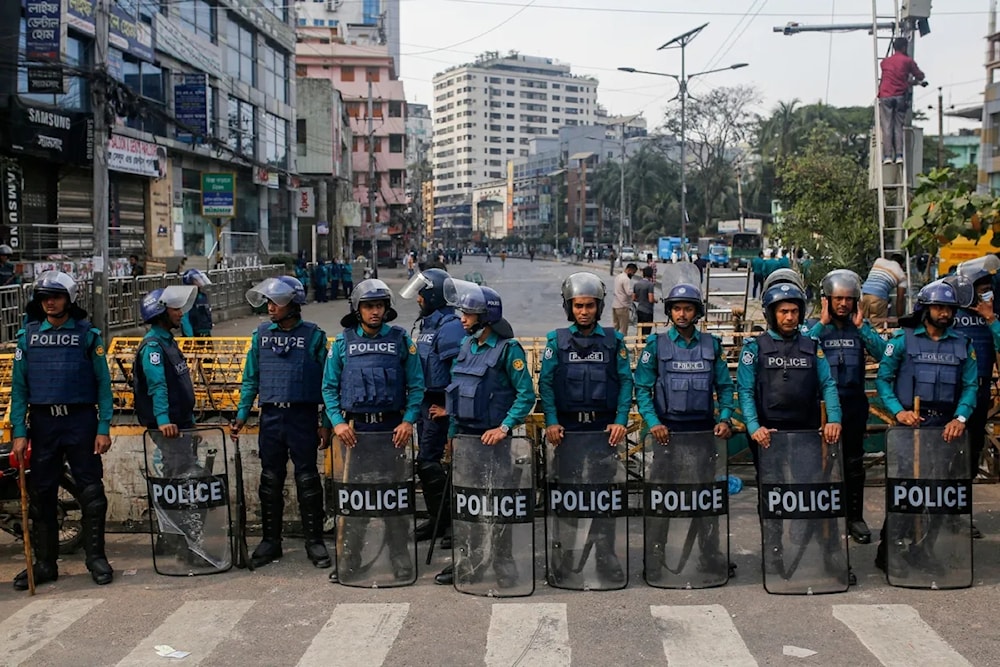Bangladesh arrests thousands as crime surges
Bangladeshi police continue to arrest thousands allegedly linked to the ousted government of Sheikh Hasina.
-

Police set up a roadblock near the Bangladesh Nationalist Party's central office in Dhaka, Bangladesh, on December 8, 2024. (AFP)
Bangladeshi security forces have arrested over 8,600 people in a two-week crackdown on gangs allegedly linked to the ousted government of Sheikh Hasina, the government announced on Monday.
The arrests follow growing concerns over rising crime in the capital, as police report that robberies have doubled since January last year.
Jahangir Alam Chowdhury, head of the Interior Ministry in the interim government that replaced Hasina after the August 2024 student-led revolution, directed officers to intensify "Operation Devil Hunt."
Police stated that security forces have arrested over 8,600 people since the operation commenced on February 8.
Chowdhury accused members of Hasina's Awami League party of orchestrating the crime wave, alleging they sought to "destabilize" the country.
Early on Monday, after an emergency briefing to address security, Chowdhury told reporters, "Operation Devil Hunt will continue and we won't let the perpetrators sleep or rest."
"I have ordered the forces to intensify patrolling."
The crackdown has also prompted protests by students angry at the spate of violent crime, with many demanding Chowdhury resign. "We don't know what this 'hunt' is actually achieving," said Sadia Afreen Mou, a graduate student.
"The situation is going from bad to worse. The number of rapes is increasing, while assaults and mugging have made life unbearable."
UN says former Bangladesh gov behind 'crimes against humanity'
On a related note, earlier this month, the UN accused Bangladesh's former government of orchestrating systematic attacks and killings against protesters last year to cling to power, warning that these actions could amount to "crimes against humanity."
According to the UN, former Prime Minister Sheikh Hasina’s government was responsible for a violent crackdown, including "hundreds of extrajudicial killings," before being overthrown in a student-led revolution last August.
In its fact-finding report on events in Bangladesh from July 1 to August 15 last year, the UN rights office stated there were "reasonable grounds to believe" that crimes such as murder, torture, imprisonment, and other inhumane acts had occurred.
The report alleges that these crimes, carried out by the government, members of the Awami League party, and Bangladeshi security and intelligence forces, were part of a coordinated effort to suppress protesters and civilians to maintain power.

 3 Min Read
3 Min Read










